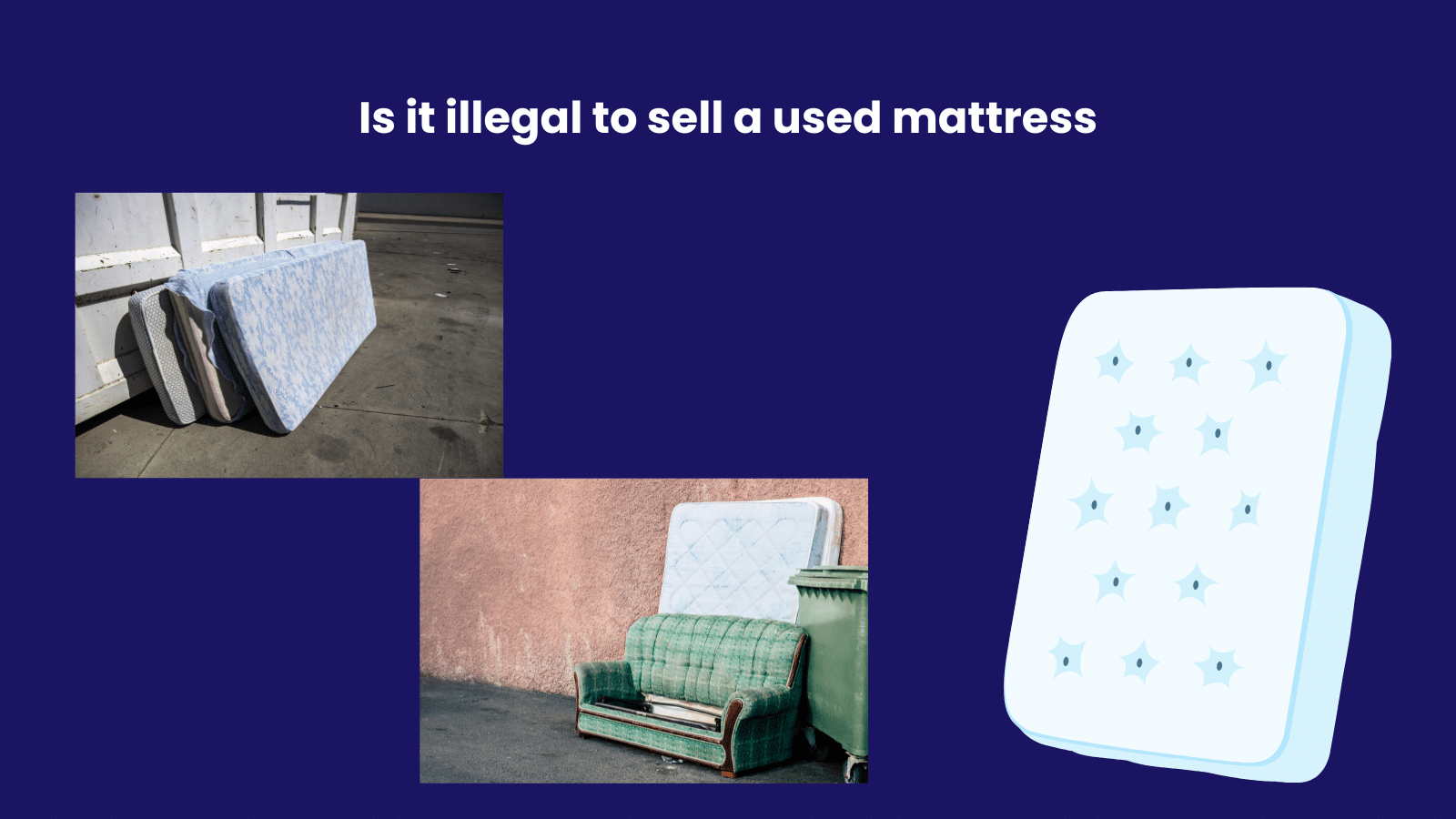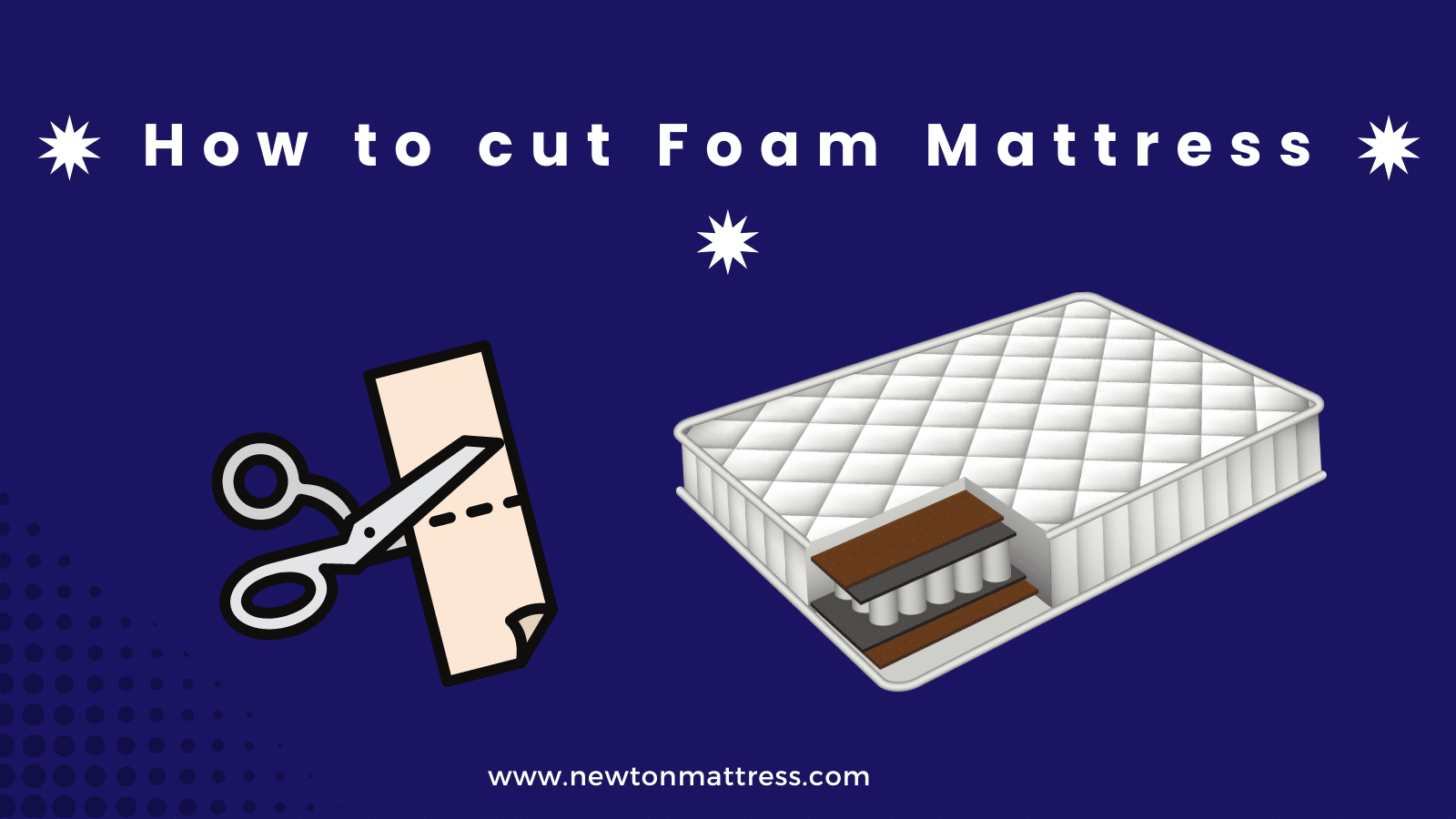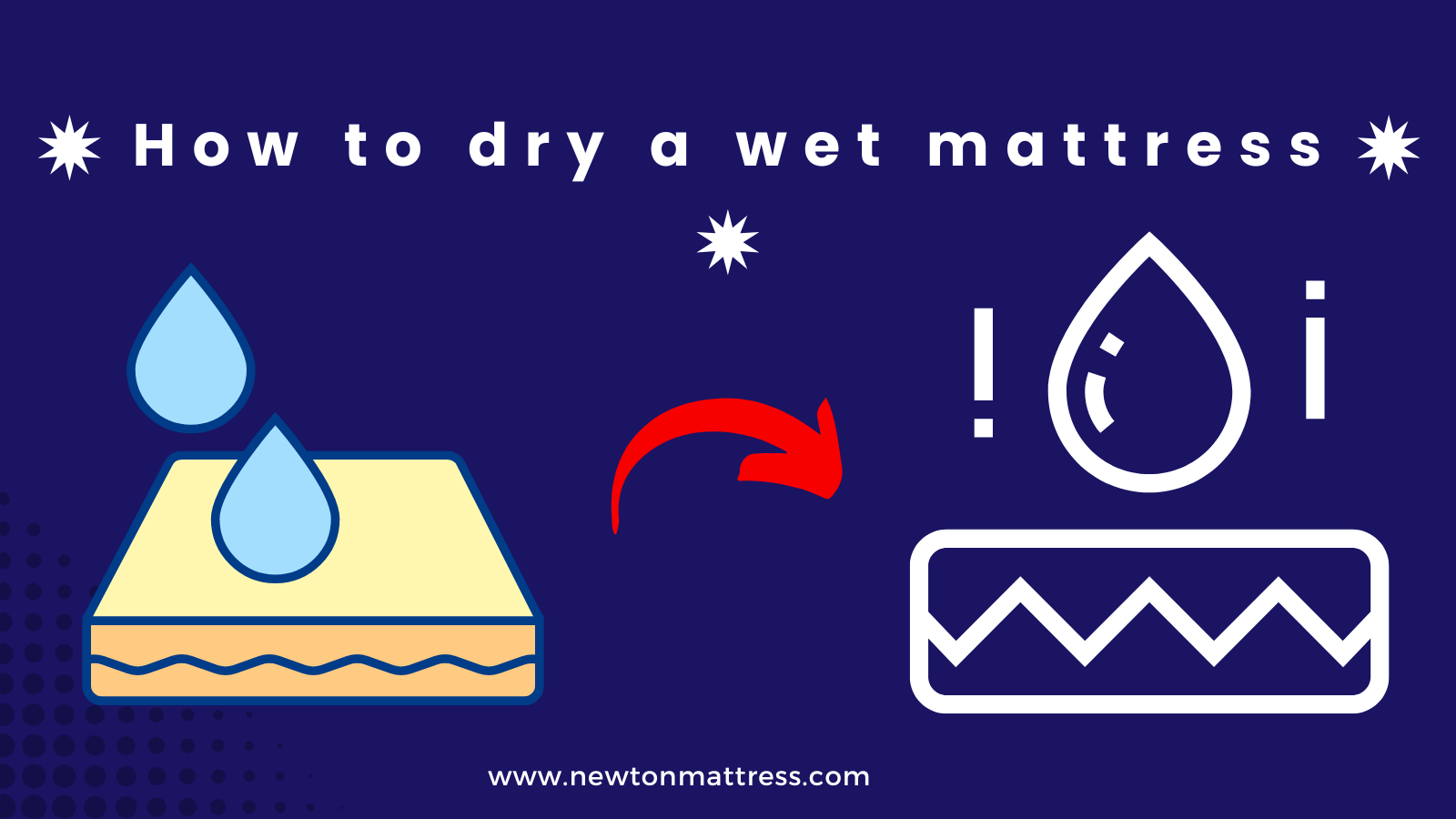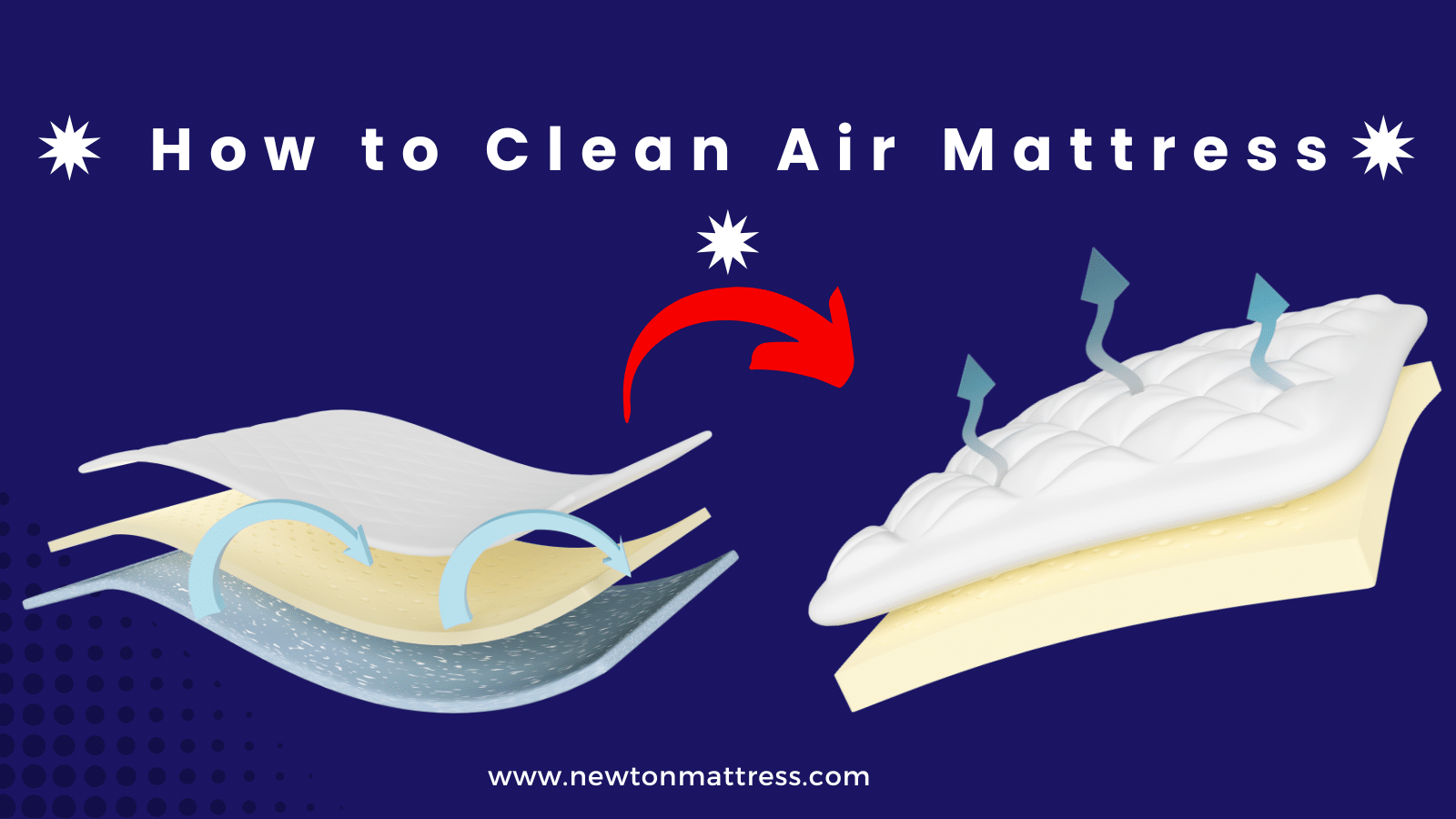Whether or not it’s illegal to sell a used mattress varies by location. Many people are uncertain about the legality and safety of selling their used mattresses. Health concerns and sanitation standards often shape the laws and regulations surrounding this practice. It’s important for sellers to understand the legal framework and the expectations for selling second-hand mattresses in their area.
In general, selling a used mattress is legal in most places. However, specific requirements must be met. These typically include proper sanitation and labeling that indicates the mattress is used. Some states have stricter guidelines, so it’s crucial to check local regulations.
For those interested in the nuances of selling a used mattress, knowing the local laws is just the beginning. Keep reading our comprehensive guide to learn how to sell your used mattress legally and ethically. Discover the steps you need to take before listing your mattress for sale to ensure a hassle-free transaction.
Legal Regulations
Before listing your used mattress for sale, it’s essential to ensure it has been thoroughly cleaned and sanitized in accordance with your state’s health and safety regulations.
Overview of Laws and Regulations
The sale of used mattresses is governed by a series of laws and regulations established to protect public health. These laws are typically enforced at the state level and can involve both the Federal Trade Commission (FTC) regulations and local health department statutes.
Sellers are often required to adhere to standards for sterilization, and federal law mandates that the mattress should carry a label indicating that it is “used” or “secondhand.”
Variations by Region or Jurisdiction
Laws and regulations concerning the sale of used mattresses can vary significantly from one region to another. For instance, California, Massachusetts, and Connecticut have adopted stringent measures that include full sanitization of the mattress before it can be sold.
Other states may have more lenient requirements, only necessitating basic cleanliness and proper labeling. It is imperative for sellers to research and comply with their specific state’s regulations to avoid potential fines or legal action.
Health Concerns
The sale and purchase of used mattresses raise valid health concerns that both sellers and buyers should be aware of. These concerns underscore the importance of adhering to legal requirements and recommended best practices.
Risks Associated with Used Mattresses
Used mattresses carry the risk of transferring bed bugs, dust mites, fungus, bacteria, and bodily fluids from the previous owner to the new user. These allergens and pathogens can cause various health issues, including respiratory problems, skin irritation, and allergic reactions. Without proper sanitization, a secondhand mattress could also potentially harbor more serious contagions that pose significant health risks.
Public Health Implications
The public health implications of selling used mattresses are broad and significant. Improperly sanitized mattresses have the potential to become vectors for disease transmission. This holds particular relevance in densely populated urban areas where bed bug infestations and the prevalence of certain diseases can become public health concerns.
Regulating the sale of used mattresses, therefore, serves not only to protect individual buyers but also to safeguard the health of the community at large.
Exceptions
When considering the sale of used mattresses, there are exceptions to the rule that cater to certain circumstances where selling may be perfectly legal.
Circumstances where selling used mattresses may be legal
In some cases, selling a used mattress is permissible without stringent sanitation requirements. These can include situations such as private sales where the mattress is sold ‘as is’ to a willing buyer, typically with full disclosure of its condition.
Charitable organizations may also be exempt from certain regulations when they distribute used mattresses to those in need, though they still often follow voluntary sanitization protocols.
Criteria for legality
The criteria for selling used mattresses legally often hinge on the mattress’s condition and the level of treatment it has undergone to ensure safety. This may include, but is not limited to, professional cleaning, heat treatment for pest eradication, and a thorough inspection for structural integrity.
Meeting these criteria usually allows the seller to comply with legal regulations, making the sale of the used mattress permissible. Furthermore, mattresses sold for refurbishing purposes or component recycling might be subjected to different or additional regulations.
Enforcement
An important aspect of regulating the sale of used mattresses is the enforcement of the laws designed to ensure consumer protection and public health. Enforcement typically involves both proactive and reactive measures.
Actions taken against violators
When a violation of used mattress sale regulations is identified, authorities may take a range of actions against the seller. These actions can include issuing warnings, mandating corrective measures, such as the removal of the listing or seizure of the mattresses, and pursuing more formal legal action if compliance is not achieved.
State health departments or consumer protection agencies often carry out periodic inspections and respond to consumer reports of unsanitary or improperly labeled mattresses.
Penalties for illegal sales
Penalties for the illegal sale of used mattresses can vary widely depending on the jurisdiction and the severity of the offense. Common penalties include fines, which can escalate with repeated offenses.
In more serious cases, or those involving large-scale operations, violators may face criminal charges, leading to higher fines, restitution, community service, and possibly jail time. It is essential for sellers to be aware of the potential consequences to ensure they operate within the framework of the law.
Tips for Sellers
To ensure a lawful and responsible sale of used mattresses, sellers should consider the following tips:
Compliance with Regulations
- Research Local Regulations: Always start by thoroughly understanding the laws and regulations in your jurisdiction. Check with your state health department or consumer protection agency to acquire current information on selling used mattresses.
- Adherence to Labeling Requirements: Ensure that all used mattresses are labeled appropriately as ‘used’ or ‘secondhand’ to comply with federal and state regulations.
- Record Keeping: Maintain accurate records of the sanitation process, including receipts, to demonstrate compliance in the event of an inspection or consumer inquiry.
- Seek Professional Assistance: When in doubt, always seek professional advice or assistance from a licensed pest control expert or mattress sanitization service.
- Stay Informed: Regularly check for updates and changes in regulations to ensure continued compliance.
Best Practices for Sanitization
- Thorough Cleaning: Before sale, used mattresses should undergo thorough cleaning with
Proper Cleaning Procedures
- Professional Sanitization: Consider hiring a professional cleaning service that specializes in mattress sanitization. They have the appropriate equipment to deep clean and sterilize mattresses effectively.
- DIY Cleaning Best Practices: If doing it yourself, use high-quality disinfectants and follow the best practices for mattress cleaning, such as steam cleaning or using a mattress-safe spray to eliminate dust mites and other allergens.
- Preventive Measures for Bed Bugs: Adopt measures like bed bug-proof encasements to inhibit infestations. Additionally, educate buyers on how to maintain the cleanliness and integrity of the mattress post-purchase.
- Avoiding Contamination: Handle used mattresses in a sanitized area to prevent contamination from other items.
Consumer Rights
Understanding consumer rights is crucial when purchasing used mattresses. These rights aim to create a safe marketplace and ensure that customers are informed and protected.
Rights when purchasing used mattresses
Consumers have the right to full disclosure about the condition of the used mattress they are purchasing. This includes being informed about any past infestations, defects, or repairs that have been made.
Mattresses should be properly labeled as ‘used’ or ‘secondhand,’ and consumers should have access to any sanitization records if applicable. Additionally, consumers also have the right to a safe product, meaning the mattress must meet all safety standards set by state and federal laws.
Responsibilities of sellers
Sellers are responsible for ensuring that they adhere to the regulations governing the sale of used mattresses. They must provide clear labeling, complete disclosure of the mattress’s history, and record-keeping of sanitation practices.
It is their duty to only sell products that are safe and have been treated according to health regulations. Sellers should also educate consumers on maintaining their mattresses and offer advice on protective measures against future contamination.
Conclusion Is it illegal to sell a used mattress
In the secondary mattress market, the key to ensuring customer satisfaction and safety lies in strict adherence to health and safety regulations. Sellers must be diligent in maintaining high standards of sanitation and transparency, providing consumers with the necessary information to make informed decisions.
Consumers, on their part, are encouraged to exercise their rights to full disclosure and to seek out only those mattresses that have been properly sanitized and labeled. Both parties play a critical role in promoting a safe and trustworthy marketplace.
By following the guidelines and best practices set forth, we can foster an environment where the resale of used mattresses benefits all parties involved without compromising public health and safety.



